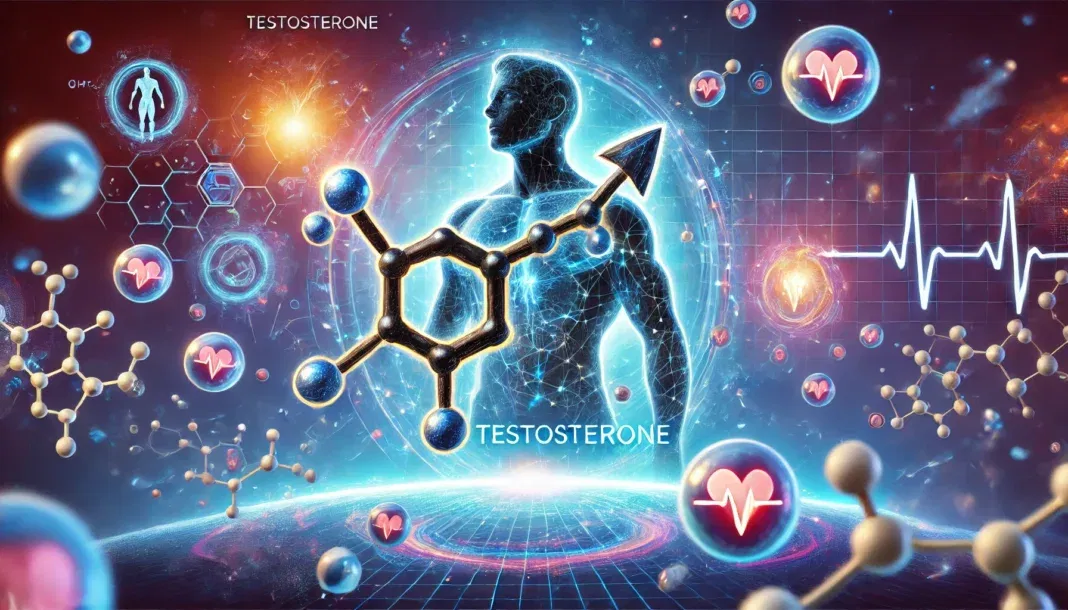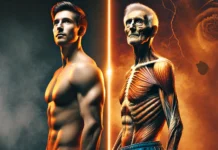The question “Is testosterone a steroid?” often sparks debate, confusion, and misconceptions. For decades, testosterone has been associated with athletic performance enhancement, muscle growth, and masculinity, often leading to misunderstandings about its biological and pharmacological nature. To fully comprehend testosterone’s role, one must explore its function as a steroid hormone, its natural production within the body, and the ways in which it is used in both medical and non-medical contexts. By understanding these facets, one can appreciate testosterone’s significance in human health, its impact on physical performance, and the potential risks and benefits of its supplementation.
You may also like: How to Get Your Testosterone Levels Checked: Best At-Home and Lab Testing Options
The Nature of Testosterone: A Steroid Hormone
To address the fundamental question—”Is testosterone a steroid?”—it is crucial to define what constitutes a steroid. Steroids are a class of organic compounds characterized by a specific molecular structure composed of four interconnected carbon rings. These compounds play various roles in the human body, from regulating inflammation to influencing metabolism and immune responses. Testosterone falls under the category of steroid hormones, which are synthesized from cholesterol and are responsible for modulating a wide array of physiological processes.
Testosterone specifically belongs to the group of androgens, or male sex hormones, which regulate the development of male reproductive tissues and secondary sexual characteristics. While it is present in both men and women, males produce significantly higher levels. The hormone is primarily synthesized in the testes in men and the ovaries in women, with smaller amounts also being produced by the adrenal glands. As a steroid hormone, testosterone exerts its effects by binding to androgen receptors in various tissues, leading to changes in gene expression that influence muscle growth, bone density, libido, and overall energy levels.
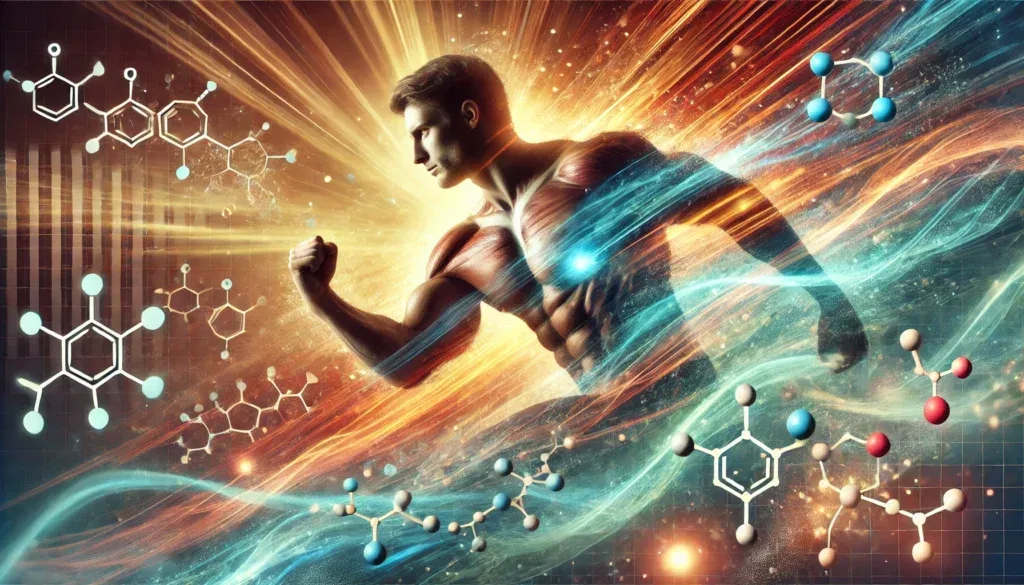
Testosterone’s Role in Human Health
Beyond its reputation for enhancing muscle mass, testosterone plays a pivotal role in maintaining overall health. Its influence extends far beyond athletic performance, affecting metabolic function, cardiovascular health, cognitive abilities, and emotional well-being. Adequate testosterone levels are necessary for maintaining bone density, preventing osteoporosis, and regulating red blood cell production, which is essential for oxygen transport throughout the body.
Furthermore, testosterone has a significant impact on mood and mental health. Research indicates that low testosterone levels are associated with increased risks of depression, anxiety, and cognitive decline. Men experiencing low testosterone often report symptoms such as fatigue, irritability, and difficulty concentrating. These effects underscore the hormone’s integral role in both physical and mental well-being, reinforcing the idea that testosterone is not merely a performance-enhancing agent but a critical component of human health.
Natural Testosterone Production and Regulation
The body regulates testosterone levels through a complex feedback system involving the hypothalamus, pituitary gland, and testes, known as the hypothalamic-pituitary-gonadal (HPG) axis. The process begins when the hypothalamus releases gonadotropin-releasing hormone (GnRH), which stimulates the pituitary gland to produce luteinizing hormone (LH) and follicle-stimulating hormone (FSH). LH then signals the testes to produce testosterone. Once adequate levels are reached, the hypothalamus reduces GnRH secretion, creating a balance that maintains optimal hormone levels.
Factors such as age, diet, exercise, stress, and sleep can influence testosterone production. As men age, testosterone levels naturally decline, leading to potential symptoms such as decreased muscle mass, reduced libido, and increased body fat. This decline has prompted interest in testosterone replacement therapy (TRT) as a means of maintaining vitality and overall well-being in aging men. However, the decision to undergo TRT should be made carefully, considering both potential benefits and risks.
Testosterone and Performance Enhancement: A Double-Edged Sword
Given its role in promoting muscle growth and recovery, testosterone has been widely used—both legally and illicitly—in sports and bodybuilding. The administration of exogenous (synthetic) testosterone or anabolic-androgenic steroids (AAS) can significantly enhance athletic performance by increasing muscle protein synthesis, red blood cell production, and overall strength. This has led to its inclusion on the list of banned substances in competitive sports.
Despite its benefits, the use of synthetic testosterone for performance enhancement carries significant risks. Excessive supplementation can disrupt the body’s natural hormone production, leading to testicular shrinkage, infertility, and gynecomastia (the development of breast tissue in men). Additionally, high doses of anabolic steroids are associated with cardiovascular complications, liver damage, and psychiatric effects such as aggression and mood swings. These risks highlight the importance of using testosterone responsibly and under medical supervision when necessary.
The Medical Use of Testosterone Therapy
Testosterone therapy is primarily prescribed for individuals diagnosed with hypogonadism—a condition in which the body fails to produce sufficient testosterone. Symptoms of hypogonadism include chronic fatigue, reduced muscle mass, erectile dysfunction, and diminished cognitive function. In such cases, TRT can restore hormonal balance and improve quality of life.
TRT can be administered in various forms, including injections, transdermal patches, gels, and implantable pellets. Each method has its own set of advantages and considerations. Injectable testosterone, for example, provides high bioavailability but may require frequent administration, while transdermal options offer steady hormone levels but can cause skin irritation. Physicians tailor treatment plans based on individual patient needs, ensuring optimal outcomes while minimizing side effects.
The Misuse and Abuse of Testosterone
Although TRT is a valuable medical treatment, some individuals misuse testosterone for non-medical purposes, often seeking to enhance muscle mass and athletic performance. This misuse is prevalent in bodybuilding and certain sports, where high doses of anabolic steroids are taken without medical oversight. Such practices not only increase the risk of adverse health effects but also contribute to ethical concerns regarding fairness in competition.
In addition to physical risks, psychological effects such as aggression, mood instability, and dependency can arise from prolonged testosterone abuse. The phenomenon known as “roid rage”—characterized by intense aggression and impulsivity—has been reported among individuals who misuse anabolic steroids. The potential for addiction further complicates the issue, as some users develop a psychological reliance on testosterone to maintain their physique and performance levels.
Testosterone and Longevity: Does It Promote a Longer Life?
Emerging research suggests that maintaining optimal testosterone levels may contribute to longevity and overall well-being. Low testosterone has been linked to increased risks of metabolic syndrome, type 2 diabetes, and cardiovascular disease—all of which can shorten lifespan. Conversely, balanced testosterone levels support metabolic health, muscle maintenance, and cognitive function, factors that promote a higher quality of life as individuals age.
However, the relationship between testosterone and longevity is complex. While testosterone replacement can provide benefits for men with clinically low levels, excessive supplementation may pose risks, particularly concerning cardiovascular health. As research continues to evolve, individualized medical guidance remains essential in determining whether testosterone therapy is appropriate for a given individual.
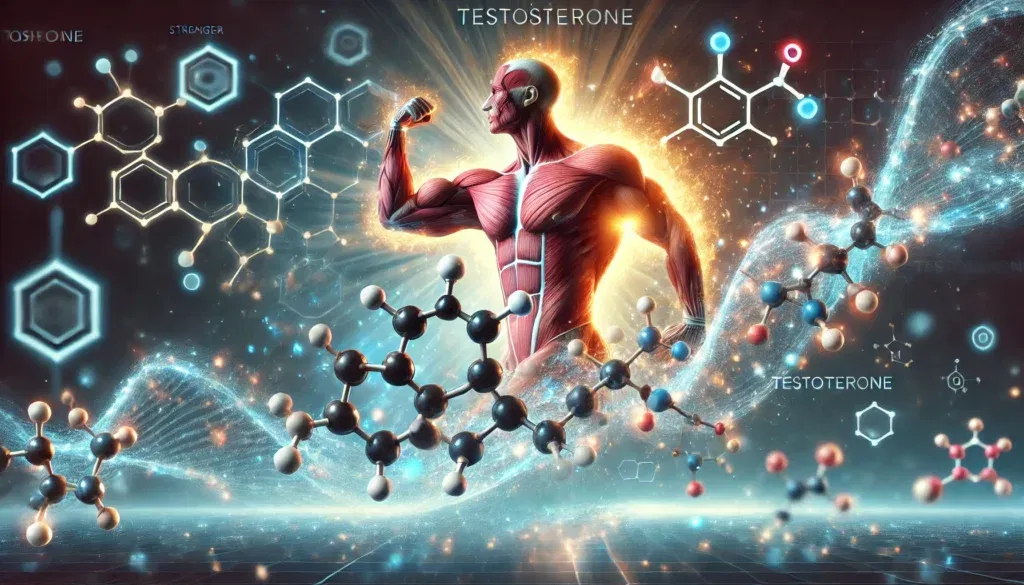
Frequently Asked Questions (FAQ) About Testosterone
1. Is testosterone a steroid or a hormone?
Testosterone is both a steroid and a hormone. It belongs to a class of hormones known as androgens, which regulate male reproductive development and secondary sexual characteristics. From a biochemical perspective, testosterone is a steroid because it is derived from cholesterol and shares a structural similarity with other steroid hormones. However, the term “steroid” can be misleading, as some people associate it solely with anabolic steroids used for performance enhancement. Unlike synthetic anabolic steroids, which are modified for muscle-building purposes, natural testosterone plays a broader role in metabolism, mood regulation, and overall health.
2. How does testosterone function as a steroid hormone?
Testosterone is a steroid hormone because it acts on cells by binding to androgen receptors and influencing gene expression. This function allows it to regulate protein synthesis, muscle growth, bone density, and even cognitive function. The body naturally produces testosterone in the testes for men and in smaller amounts in the ovaries for women. It is also synthesized in the adrenal glands of both sexes. Since testosterone is a steroid hormone, it has significant effects on various physiological processes beyond just male reproductive health, including fat distribution, immune response, and cardiovascular function.
3. Is test a steroid that can be used for medical purposes?
Yes, medical professionals prescribe testosterone therapy for individuals with low testosterone levels, a condition known as hypogonadism. Testosterone replacement therapy (TRT) helps restore normal hormone levels and alleviate symptoms such as fatigue, depression, and decreased muscle mass. While testosterone is a steroid, its medical use is carefully monitored to avoid potential side effects like fluid retention, mood swings, and cardiovascular risks. Unlike illicit anabolic steroid use, TRT is administered under strict medical supervision, often through gels, injections, or patches.
4. What are the risks of using testosterone as a steroid for performance enhancement?
When used beyond medical necessity, testosterone as a steroid can pose serious health risks. Athletes and bodybuilders sometimes misuse testosterone to enhance muscle mass and athletic performance, but this can lead to complications such as liver damage, heart disease, and hormonal imbalances. Additionally, excessive testosterone use can suppress natural hormone production, leading to testicular shrinkage and infertility. Because testosterone is a steroid hormone that influences multiple body systems, improper use can also result in mood disorders like aggression and depression.
5. How does testosterone impact muscle growth and strength?
Testosterone plays a crucial role in muscle development by increasing protein synthesis and promoting muscle fiber growth. Since testosterone is a steroid hormone, it enhances muscle recovery and reduces muscle breakdown, making it an essential factor for strength training and resistance exercises. However, natural testosterone levels vary among individuals, and factors such as diet, sleep, and exercise significantly influence muscle-building potential. While some athletes turn to synthetic steroids for additional gains, natural ways to optimize testosterone, such as weightlifting and proper nutrition, are safer and more sustainable.
6. Is testosterone a steroid that affects mood and mental health?
Yes, testosterone has a profound impact on mood, cognition, and mental well-being. Research suggests that low testosterone levels are linked to symptoms of depression, anxiety, and reduced motivation. Since testosterone is a steroid hormone that interacts with neurotransmitters in the brain, it can influence stress resilience and emotional regulation. Some studies indicate that optimizing testosterone levels may improve focus, confidence, and overall mental clarity. However, excessive testosterone levels, particularly from steroid abuse, can lead to increased aggression, irritability, and mood swings.
7. How does aging affect testosterone levels in men?
Testosterone levels naturally decline with age, typically starting around the age of 30. This decline can lead to symptoms such as reduced energy, muscle loss, increased body fat, and decreased libido. While testosterone is a steroid hormone that remains essential throughout life, aging men may experience a gradual reduction in its production. Lifestyle factors such as regular exercise, healthy eating, and stress management can help slow this decline. In cases where symptoms significantly impact quality of life, testosterone replacement therapy may be considered under medical guidance.
8. Can women benefit from testosterone therapy?
Although testosterone is primarily associated with male physiology, women also produce small amounts of this hormone. Testosterone is a steroid hormone that supports female libido, bone density, and muscle strength. Some women with low testosterone levels experience fatigue, mood swings, and reduced sexual desire. In such cases, low-dose testosterone therapy may be prescribed to restore balance. However, because testosterone levels in women must be carefully regulated, therapy is typically administered in much smaller doses compared to men.
9. How do lifestyle choices influence natural testosterone production?
Several lifestyle factors affect testosterone levels, including diet, exercise, sleep, and stress management. Since testosterone is a steroid hormone with a strong link to overall health, maintaining a balanced diet rich in healthy fats, proteins, and micronutrients can support its production. Regular strength training and resistance exercises have been shown to naturally boost testosterone levels. Additionally, prioritizing quality sleep and reducing chronic stress are critical for hormone balance. Poor lifestyle choices, such as excessive alcohol consumption, smoking, and lack of physical activity, can contribute to declining testosterone levels.
10. What are the signs of abnormally high testosterone levels?
While low testosterone is often discussed, excessively high testosterone levels can also pose health risks. Since testosterone is a steroid hormone that affects multiple body functions, too much of it can lead to increased aggression, acne, high blood pressure, and liver damage. In men, excessive testosterone may cause hair loss and testicular shrinkage due to disrupted hormone balance. Women with high testosterone levels may experience symptoms such as deepened voice, facial hair growth, and irregular menstrual cycles. Balancing testosterone within a healthy range is essential for overall well-being, whether through natural methods or medical interventions.
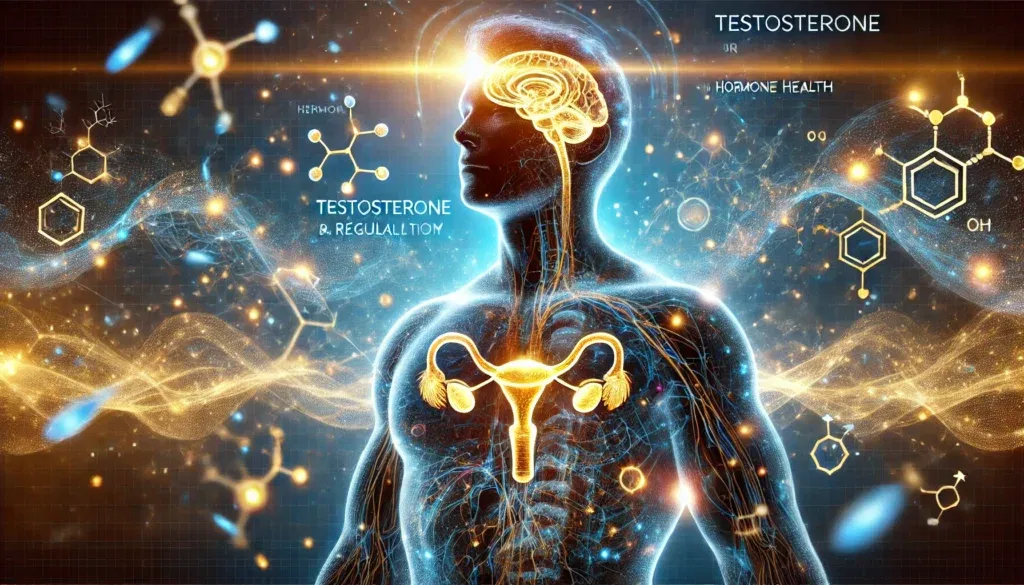
Final Thoughts: Understanding Testosterone Beyond the Myths
Testosterone is undeniably a steroid hormone, but its role extends far beyond the stereotypical associations with bodybuilding and athletic performance. It is a fundamental component of human health, influencing everything from physical strength and energy levels to mood and cognitive function. While its use in medical therapy can be life-changing for those with deficiencies, misuse and overuse present serious health risks that should not be overlooked.
Understanding the nuances of testosterone enables individuals to make informed decisions about their health, whether considering TRT or simply seeking to optimize natural hormone production. By maintaining a balanced approach to hormone health, individuals can harness the benefits of testosterone while minimizing potential risks, ultimately supporting longevity, vitality, and overall well-being.
testosterone function, anabolic steroid effects, male hormone therapy, androgen supplementation, natural testosterone production, testosterone and muscle growth, steroid hormone regulation, TRT benefits and risks, anabolic steroid misuse, testosterone and cardiovascular health, hormonal balance and longevity, strength and performance enhancement, endocrine system function, testosterone decline with age, testosterone and mental health, HPG axis regulation, testosterone and cognitive function, testosterone supplements safety, testosterone and metabolic health, natural ways to boost testosterone
Further Reading:
Benefits of Testosterone Hormone in the Human Body: A Systematic Review
Testosterone and sport: current perspectives
Disclaimer: The information provided in this article is for general informational purposes only. The content does not constitute professional advice of any kind, including but not limited to medical, legal, or financial advice. HisHealthMag and its contributors make no representations or warranties regarding the accuracy, completeness, or reliability of the information presented. Always seek the advice of a qualified professional for any specific concerns or questions you may have. Neither HisHealthMag nor its authors assume any responsibility or liability for any actions taken based on the information provided in this article. The views and opinions expressed are those of the author(s) and do not necessarily reflect the official policy or position of HisHealthMag.


